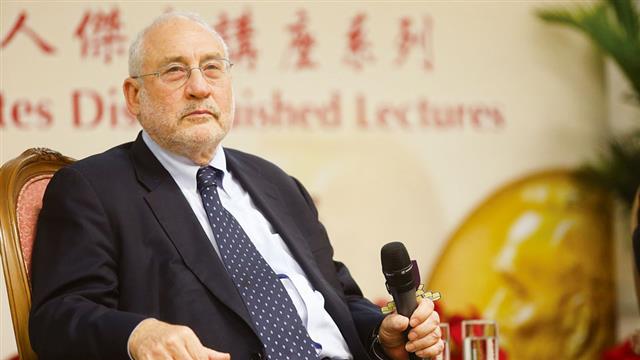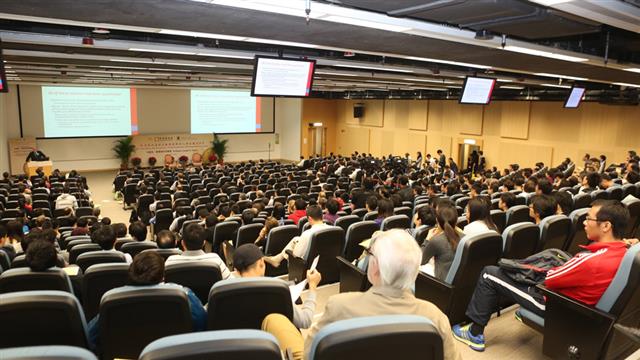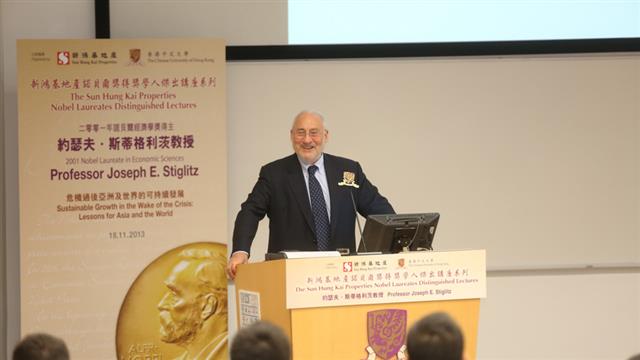CUHK and Sun Hung Kai Properties jointly presented a public lecture on 'Sustainable Growth in the Wake of the Crisis: Lessons for Asia and the World' by 2001 Nobel Laureate in Economics Prof. Joseph E. Stiglitz. The event, held on 8 November at Yasumoto International Academic Park, drew a full house of 600 academics, students, members of the commercial and financial sectors, and the public.
In the lecture, Professor Stiglitz evaluated the implications of the financial crisis that began in 2007 for economic theory and policy, particularly in relation to China and Asia. The market and regulatory failures that sparked the global downturn were stark lessons for economists and policy-makers, but those lessons have not all been learned—at least not as much as they should have been.
Professor Stiglitz was the creator of a new branch of economics called 'The Economics of Information' which earned him the Nobel Prize in 2001. He suggested that asymmetries of information and other imperfections of information in the market could have profound effects on how the economy behaved. He pioneered such pivotal concepts as adverse selection and moral hazard, which have now become the standard tools of theorists and policy analysts.





